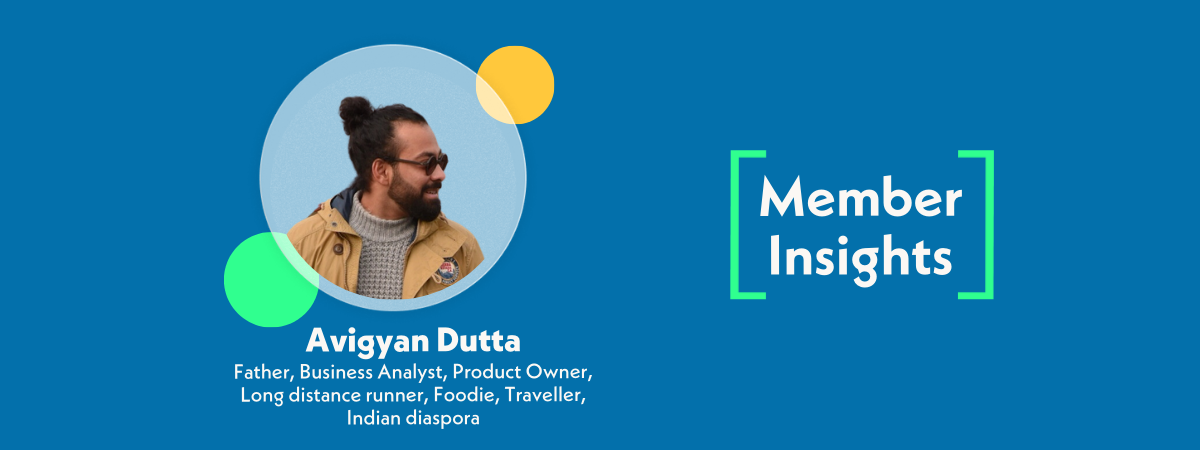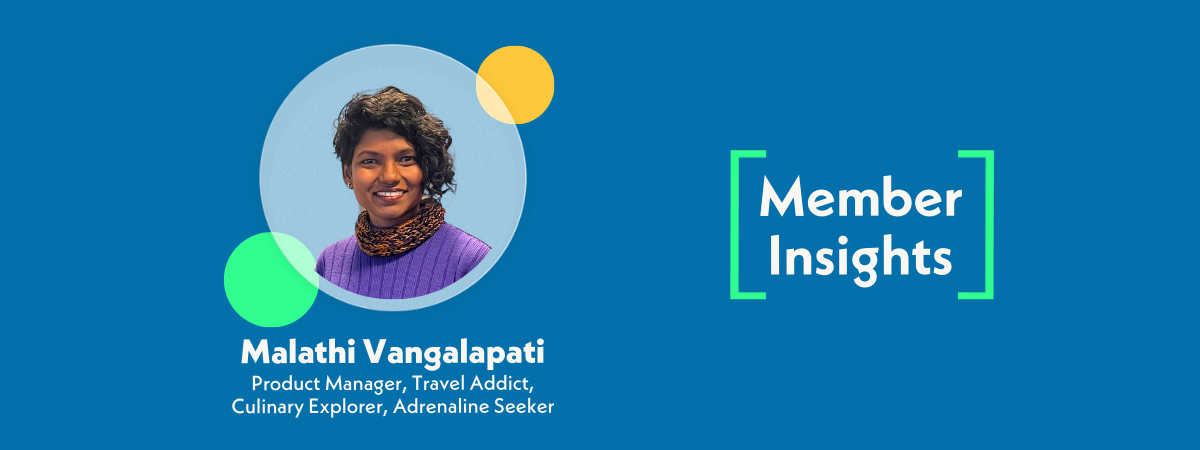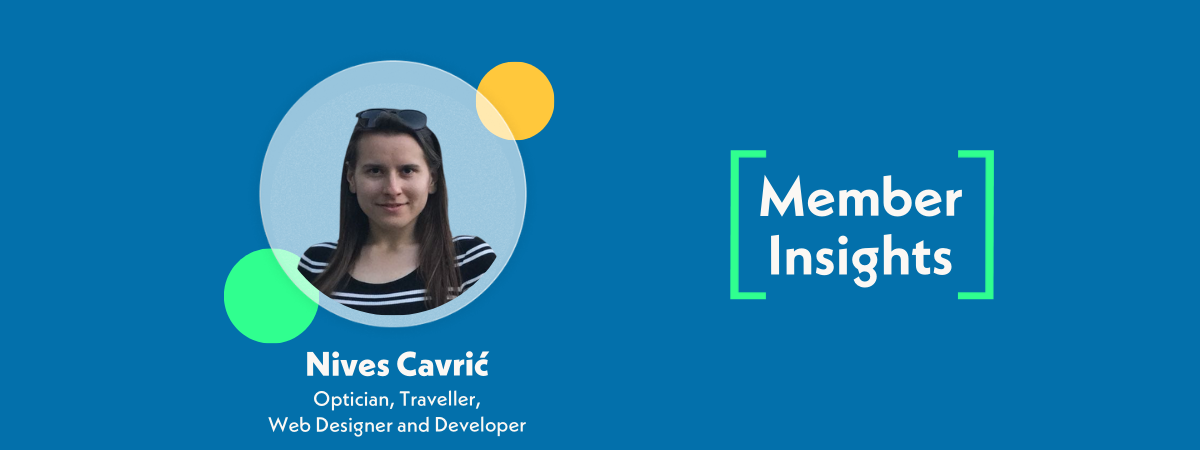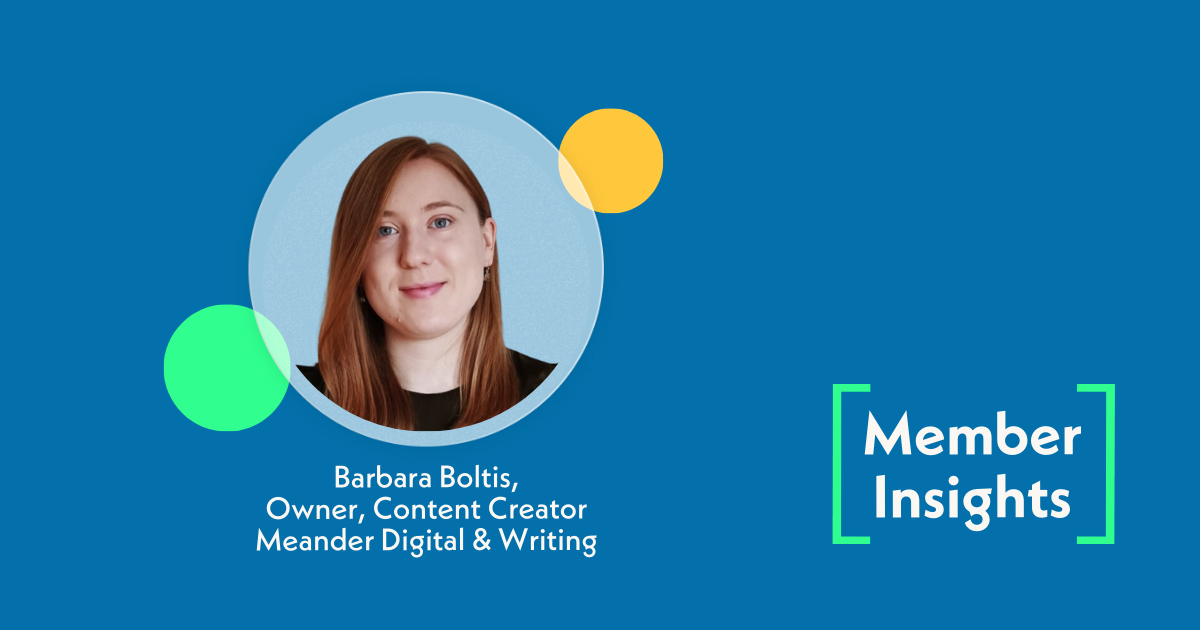Language barriers and those who overcome them
The latest installment of our Member Insights series comes courtesy of Marine Hillaire, a talented and deeply passionate UX & UI designer from Nevers, France. Hers is the story of working in a foreign language for the first time, and the unexpected opportunities and challenges that arose from it.
Language barriers and those who overcome theme
I had always lived in France, a little bit in the middle of nowhere, somewhere halfway between Lyon and Paris. However, I did not always expect to become a designer. My first degree was in English literature — ironically, that caused me a fair share of headaches.
Turns out that people in real life do not talk like Keats or Shakespeare, or even like they do in Hollywood movies, for that matter. And they especially don’t talk that way in Scotland, which is where my first English-speaking employer was located.
Meeting my remote team members for the first time was confusing. I knew I knew English, yet I could hardly understand half the conversation. I specifically remember an initial chat with my teammate Kyle, and how he said “cheers” instead of goodbye, and how I was trying to figure out where the champagne was at. Another good one was when Richard got married and informed us of his stag do. A stag do? I couldn’t help but think of a couple of groomsmen roaming the woods to find a deer to give a new haircut to. Highly unlikely, I felt, but maybe not entirely impossible in Scotland.
Could you please turn on the subtitles, please?
I was surprised by how much these problems persisted in a work environment. I would’ve presumed that there isn’t so much space for misunderstandings in a setting with such a clear situational framework, but boy did I underestimate how much casual exchange informs the day-to-day. And then there’s the culture gap, of course.
The very first time I met my team in person I threw the entire group into chaos because nobody could figure out how to greet each other. The French do kisses on the cheek, the Scotts wanted to do handshakes, we did an awkward hybrid between both and then threw in some oddly-performed hugs for good measure. There are countless similar examples — I still regularly think back to that same first meeting and how I brought snacks and pastries for everyone and (quite naturally, for somebody from the south of France) expected to receive the same in return.
But it goes beyond simple “culture”, it affects work culture, too. Starting with the fact that French companies have a very tangible hierarchy, compared to which my new job gave me a very strong peace-and-love vibe. Or workload and performance expectations, which felt much bigger in the English-speaking environment.
Then there are actual differences in the world of design. Take user interviews, for example. In France, I hardly encountered them, but in my new role, they were vital.
I discovered a whole new world in terms of processes, as well as a general approach to design, that hadn’t been translated yet for the French design-work setting. Not only that, but my entire workflow had to change because of it!
Vive la France
While still trying to unravel the local vernacular of my team, I had a second unpleasant realization: reading classic literature and watching Captain America movies wasn’t only bad preparation for meeting my first Scotsman, it also didn’t prepare me for doing my job in any language but my own.
For me, design and the world of design existed in French and only in French. I hadn’t even considered the possible translations for design-specific words, let alone how to use them in practice.
In retrospect, it’s a little absurd to think about just how French-centered my initial degree was, at a time when so much of the working world operates in English. But we French are proud, and very protective of our language and identity, so that’s what my professors stuck to with vehemence — gifting the rest of us a little, unexpected handicap along the way.
Even if you don’t collaborate with a remote, international team, as a designer dealing with digital, your everyday operations are almost
bound to be in English, say because you’re working with HTML or CSS or so. That didn’t stop our teachers from exclusively using French, or even painstakingly using French terms for words that are commonly known in English. Or, even weirder, using English words that have been transposed to French but don’t mean the same! Take “mockup”, which we use in France, but rarely to describe an actual mockup, and more commonly to refer to a wireframe.
To say the truth, had I only had my design degree and not my English degree, I think I would have been entirely unprepared to actually work as a designer — and that’s pretty strange to think about.
All for the best
Ironically, I think that all these language hurdles made me much better at communicating. While I would often intuitively know what to do
in French, I now had to take the time to express my plans and ideas to others, and really dig into what I was trying to do, and how and why. Since starting to work in English, I’ve become much better at being succinct and clear about my ideas, and effective in sharing them with others.
Let’s take this one step further: has working in English made me a better designer, not just a better communicator? I think it has. Having to formalize my thoughts has helped me impart more purpose to my work, and provide clearer value for my clients. More than that, it’s made me more educated about design in general.
When I decided to become a designer, I didn’t take my studies further than a bachelor’s degree. My academic knowledge on the subject often felt rudimentary, even when my talent didn’t. However, because I was working in a new language, I was now constantly learning again, putting names to concepts I had previously only known intuitively, and discovering rules and frameworks and connected ideas in the process of translating my vocabulary via the internet.
As easy as that, not knowing the word “login” would lead to a piece of research about why people above the age of 60 don’t like to press a certain color of button. Frankly, that’s amazing.
Penny for my thoughts
Here’s a bit of advice: dare to ask. The temptation is high to try to kind of float through a meeting or conversation until you’ve got your first chance to consult Google Translate in private, but that’s no way to work, nor to be a good team member. You can do better than that!
Though we had countless moments of language difficulties and culture shock, it was never a capital “P” problem. We’d laugh, talk, and explain the issue to each other. That’s it. Don’t take it too seriously — why should you? The second you stop worrying and take your differences in stride, there’s no limit to what you can do and learn.
Who is Marine?
Marine is a devoted dog mom of five, as well as of one very sleepy cat. She is passionate about technology and ergonomics and is always looking for new and innovative ways to approach design.
Summary
About Out of Office
Out of Office is a lifestyle and careers platform for remote and relocating tech talent.
Out of Office solves the unique challenges of relocating andworking remotely by creating a platform that caters to remote talent.
We aim to be the absolute best, strongest, and most skilled tech team worldwide. Our members take immense pride in being part of a unique community that ensures success for every client.
Want to join Out of Office community?
Categories
Don't wait a moment longer to be part of the fun.
Follow our social media pages and see how our community evolves!
Looking for more info?







51 Bracken Rd, Sandyford, Dublin, D18 CV48, Ireland
CXC Copyright 2023 | Privacy and Cookie Policy | Terms & Disclaimer | Sitemap | Powered with 🧡 by Shazamme




